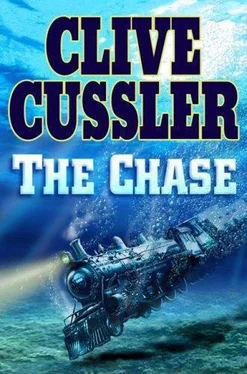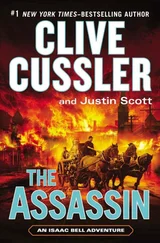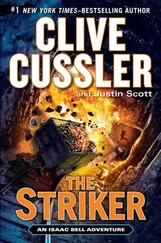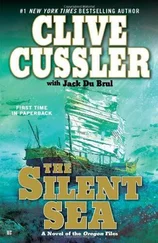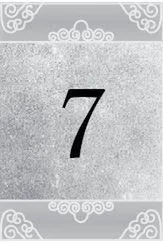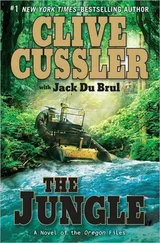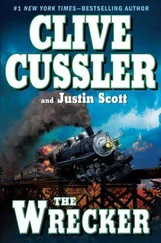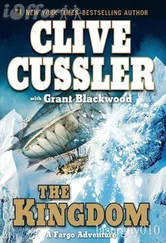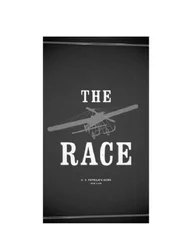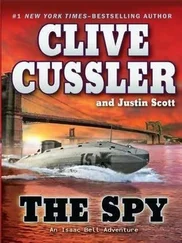“I’m Sigler. How can I help you?”
“I’m Glenn Irvine with the Van Dorn Detective Agency, here for an investigation into the robbery a few years ago.”
Sigler quickly frowned with an attitude of annoyance. “Don’t you think it’s a little late for Van Dorn to arrive on the scene? The robbery and murders took place back in 1903.”
“We were not engaged to make an investigation at that time,” Irvine retorted.
“So why are you here at this late date?”
“To record the serial numbers of the bills taken by the robbery, if they were listed in a register.”
“Who is paying for your services?” Sigler insisted.
Irvine could imagine Sigler’s distrust and incomprehension. He might have felt the same if he was in the bank manager’s shoes. “The United States government. They want the robberies and murders to stop.”
“Strikes me that the bastard can’t be caught,” Sigler said coldly.
“If he walks on two legs,” said Irvine confidently, “the Van Dorn Agency will catch him.”
“I’ll believe it when I see it,” Sigler said indifferently.
“May I see your register of serial numbers? If we have those from the stolen bills, we will make every effort to trace them.”
“What makes you think they were recorded?”
Irvine shrugged. “Nothing. But it never hurts to ask.”
Sigler fished around in his desk and retrieved a set of keys. “We keep all the old bank records in a storehouse behind the building.”
He motioned for Irvine to follow him as he led the way through a back door toward a small stone building sitting in the middle of the bank’s property. The door protested with a loud squeak as it opened on unoiled hinges. Inside, shelves held rows of ledgers and account books. A small table and chair sat at the back of the storeroom.
“Sit down, Mr. Irvine, and I’ll see what I can find.”
Irvine was not optimistic. Finding a bank that kept a record of serial numbers of its currency seemed highly improbable. It was a long shot, but every avenue had to be followed. He watched as Sigler went through several clothbound ledgers. At last, he opened one and nodded.
“Here you are,” Sigler said triumphantly. “The serial numbers our bookkeeper recorded of all the currency in the vault two days before the robbery. Some of the bills, of course, were distributed to customers. But most were taken by the bandit.”
Irvine was stunned as he opened the book and stared at the columns of neatly inked numbers within the lines of the pages. There were several different kinds of large banknotes. Gold certificates, silver certificates, notes issued by individual banks were recorded in the ledger. United States Treasury serial numbers were printed vertically and horizontally on the sides; the local bank that issued them added their own number at the bottom. Most came from the Continental & Commercial National Bank of Chicago and the Crocker First National Bank of San Francisco. He looked up at Sigler, now fired with elation.
“You don’t know what this means,” Irvine said, gratified beyond his greatest expectations. “Now we can pass out numbers on the stolen bills to every bank in the country where the bandit might have deposited them. Handbills with the numbers can also be distributed to merchants throughout the West, urging them to be on the lookout for the bills.”
“Good luck,” said Sigler pessimistically. “It’s hardly possible that you can trace them back three years. Any one of them could have changed hands a hundred times by now.”
“You’re probably right, but hopefully the bandit is still spending them.”
“Slim chance of that,” Sigler said with a tight grin. “I’ll bet a month’s wage he spent it all a long time ago.”
Sigler was probably right, Irvine thought. But Irvine was not discouraged. Bell had said that it would be an insignificant mistake that would trip the bandit up. Now it was only a question of getting the information out to banks and merchants and hope there would be a response that led to the whereabouts of the mysterious killer.
CURTIS SAT AT A TABLE IN THE WESTERN ARCHIVES Division of the Union Pacific Railroad’s office in Omaha, Nebraska, surrounded by high shelves filled with ledgers and account books of reports on train operations. During the nine days since he launched his search, he had scoured the records of four different railroads and the Wells Fargo stage lines trying to find a link for how the Butcher Bandit escaped capture after committing his robberies and hideous murders.
It was an exercise in futility. Nothing fell into place. He had begun with the stagecoach possibilities. Most of the stage lines were gone by 1906. Wells Fargo still held the monopoly, with lines extending several thousand miles over overland express routes in remote areas that were not serviced by railroads. But the schedules did not fall into the proper times.
There were sixteen hundred different company railroads across the nation in 1906, with two hundred twenty thousand miles of track among them. Fifty of the largest had a thousand miles of track each. Curtis had narrowed the number of companies down to five. They were the railroads with scheduled runs through the towns hit by the bandit.
“Would you like a cup of coffee?”
Curtis looked up from a train schedule record into the face of a little man standing no more than five feet two inches. His name was Nicolas Culhane, and his biscuit brown–streaked graying hair was brushed forward over his head to cover the receding baldness. The ferret brown eyes shifted with amazing frequency, and he wore a thinly clipped mustache whose pointed ends extended a good inch on either side of his lips. He walked with a slight stoop and wore spectacles with lenses that magnified his eyes. Curtis was amused at the helpful little man with the springy step. He was the perfect stereotype of a keeper of musty records in an archive.
“No, thank you.” Curtis paused to glance at his pocket watch. “I never drink coffee in the afternoon.”
“Having any luck?” asked Culhane.
Curtis shook his head wearily. “None of the passenger trains ran close to the time the bandit robbed the banks.”
“I pray you catch the murdering scum,” Culhane said, his voice suddenly turned angry.
“You sound like you hate him.”
“I have a personal grudge.”
“Personal?”
Culhane nodded. “My closest cousin and her little boy were killed by the Butcher at the bank in McDowell, New Mexico.”
“I’m sorry,” Curtis said solemnly.
“You must catch and hang him!” Culhane struck a fist on the table, causing the schedule book lying open to tremble and flip its pages. “He has got away with his crimes far too long.”
“I assure you, the Van Dorn Agency is working night and day to bring him to justice.”
“Have you found anything at all that might trace him?” Culhane asked anxiously.
Curtis raised his hands in a helpless gesture. “All we’ve discovered is that he is missing the little finger on his left hand. Besides that, we have nothing.”
“Did you check out the stagecoach lines?”
“I spent a day in the Wells Fargo records department. It was a dead end. None of their schedules put them in town within four hours of the robberies. More than enough time for the bandit to evade capture.”
“And the passenger trains?”
“The sheriff and marshals telegraphed surrounding towns to stop all trains and examine the passengers for anyone who looked suspicious. They even searched all luggage in hopes that one of the bags might contain the stolen currency, but they turned up no evidence, nor could they make an identification. The bandit was too smart. The disguises he used to rob and murder were too original and too well executed. The law officers had little or nothing to go on.”
Читать дальше
